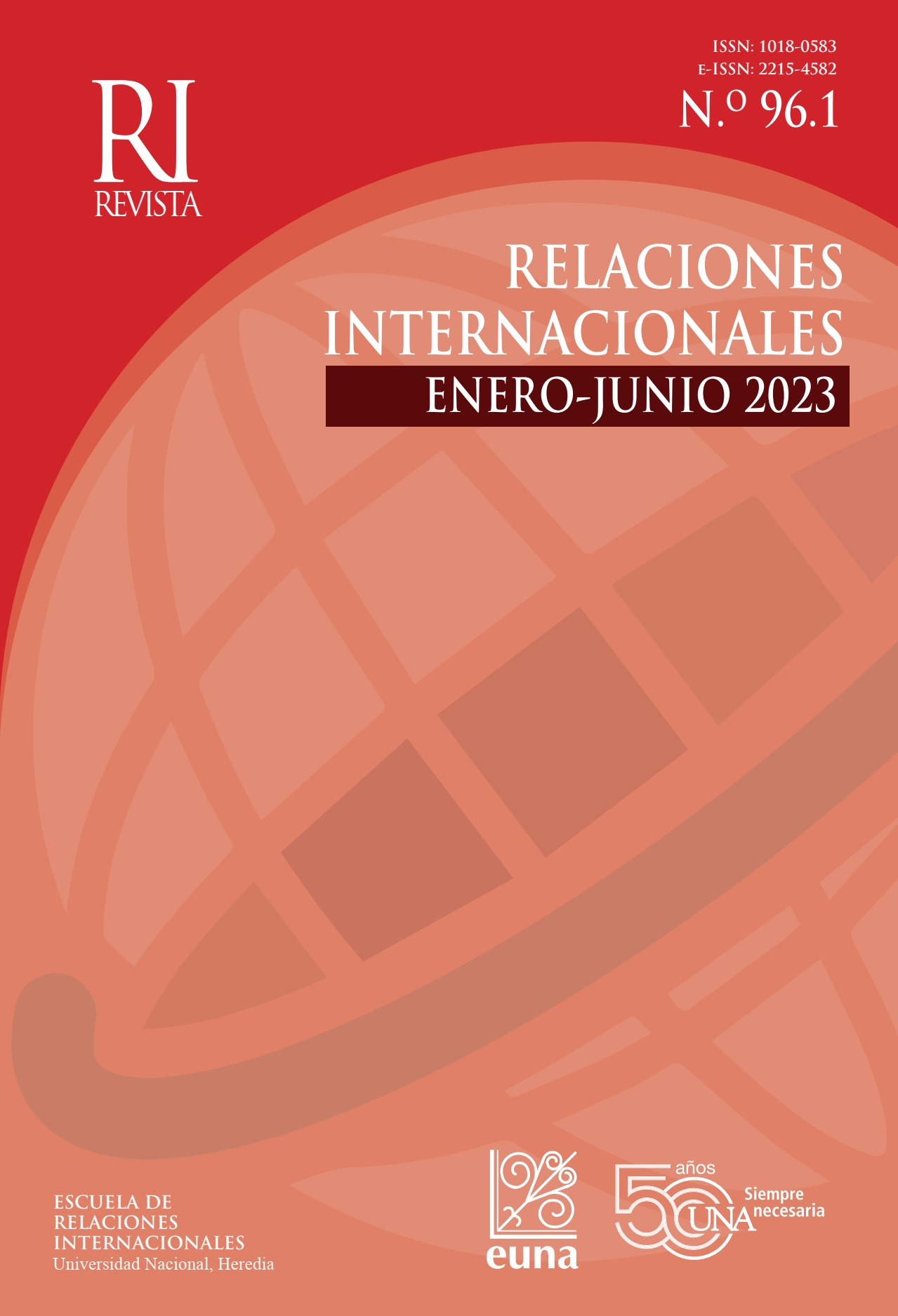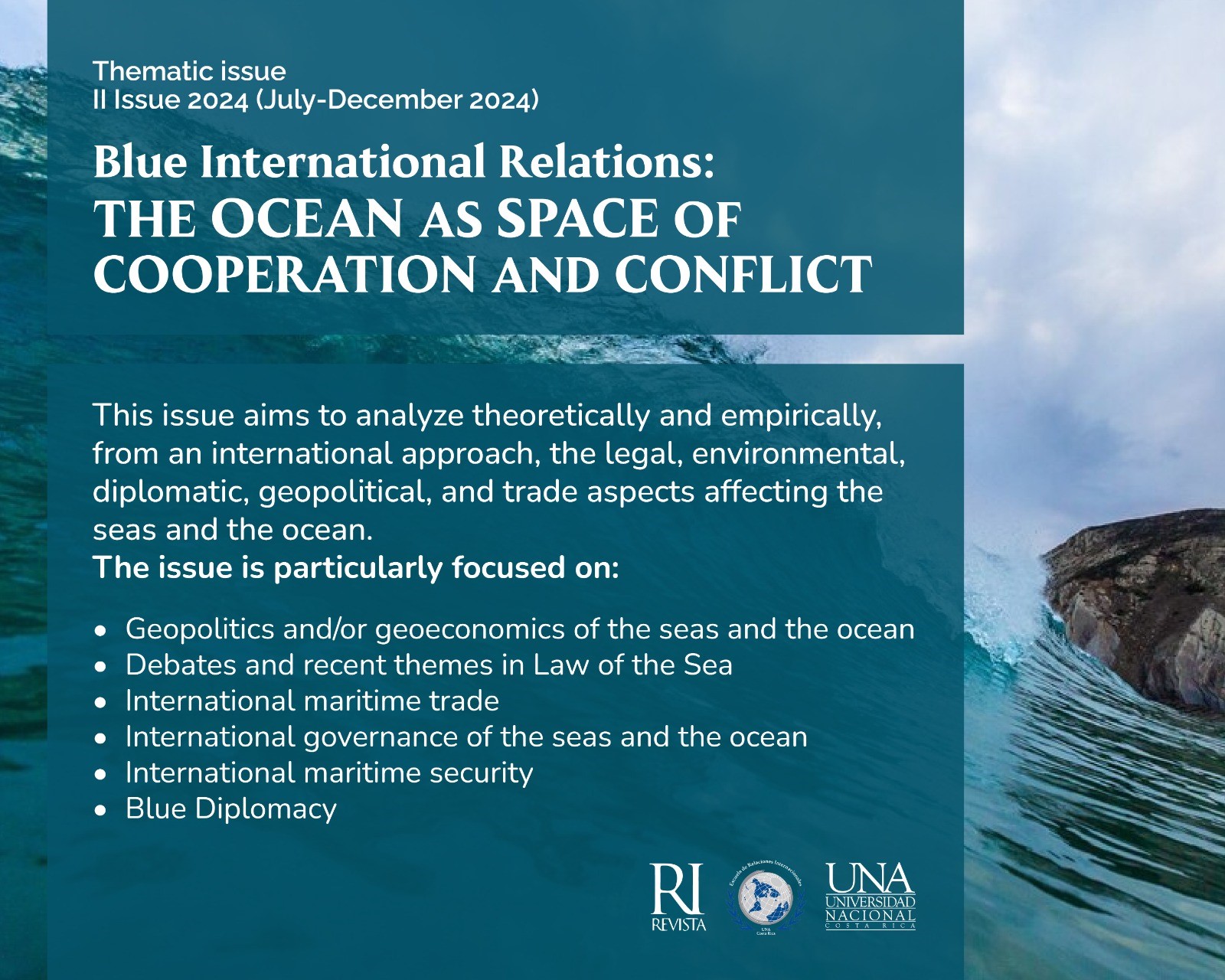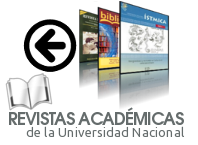The influence of framing on the governance of climate change adaptation and risk management at the local level: The cases of Upala in Costa Rica and San Francisco del Valle de Ocotepeque, Honduras
DOI:
https://doi.org/10.15359/ri.96-1.10Keywords:
Climate change adaptation, Honduras, Costa Rica, framing theory, risk management, territorial planningAbstract
Climate change is one of the main global challenges of the 21st century. The international agenda has come a long way since the approval of the United Nations Framework Convention on Climate Change. The international community has understood that the mitigation agenda will not be enough to address the problems associated with climate change and the latest international instruments have incorporated adaptation as a central issue in the response to it. States have been approving Nationally Determined Contributions within the framework of the Paris Agreement. In these contributions, the generation of public policy to promote adaptation at the national level has been established as a central element. However, a fundamental challenge of adaptation is that it must be studied and developed locally; therefore, national, and international instruments can stimulate and promote these processes. Nevertheless, it will be the local authorities and actors who will determine the progress of these processes.This article focuses on analyzing the influence of actors and their frames of reference in local planning processes and the integration of adaptation to climate change. We studied the cases of Upala, Alajuela in Costa Rica, and San Francisco del Valle de Ocotepeque in Honduras, to understand how these frameworks influenced the development of local public policies that integrated risk management and climate change adaptation measures.The results show that the referential frameworks of the actors influence how risk and climate change are understood and the assessment of the measures that were included in the local plan. Thus, using comparative case studies applied to countries is a key tool for analyzing international phenomena. Although adaptation is a locally led process, its study, practice, and instruments that facilitate its progress demand research processes that allow the different practices and associated problems to be compared internationally. From the international relations agenda, the study of these adaptation practices of different countries is a key tool in the study of the international agendas for adaptation and response to climate change.
References
Asamblea Legislativa de la República de Costa Rica (2005). Ley Nacional de Emergencias y Prevención del Riesgo N.o 8488 del 22/11/2005.
Beumer, C. (2014). Stepping stone cities? : exploring urban greening and gardening as a viable contribution to global biodiversity conservation. Universitaire Pers Maastricht, Retrieved from https://cris.maastrichtuniversity.nl/portal/en/publications/stepping-stone-cities--exploring-urban-greening-and-gardening-as-a-viable-contribution-to-global-biodiversity-conservation(5ea45ce5-a4ca-4c84-bafd-c6aff9b239e4).html
Beumer, C., Figge, L., & Elliott, J. (2018). The sustainability of globalisation: Including the ‘social robustness criterion’. Journal of Cleaner Production, 179, 704-715. doi:https://doi.org/10.1016/j.jclepro.2017.11.003
Congreso Nacional de la Republica de Honduras (2003). Ley de Ordenamiento Territorial Decreto No. 180-2003. Recuperada de: http://cidbimena.desastres.hn/RIDH/pdf/doch0063/pdf/doch0063.pdf
Congreso Nacional de la República de Honduras (2009). Ley del Sistema Nacional de Gestión de Riesgos (SINAGER) Decreto No. 151-2009. Recuperado de:
Congreso Nacional de la Republica de Honduras (2013). Ley de Cambio Climático. Decreto No. 297-2013. Recuperada de: https://www.tsc.gob.hn/biblioteca/index.php/leyes/595-ley-de-cambio-climatico
Comisión Permanente de Contingencias de Honduras (2013). Política de Estado para la Gestión Integral del Riesgo en Honduras. Recuperada de https://portalunico.iaip.gob.hn/portal/ver_documento.php?uid=OTYyMzg5MzQ3NjM0ODcxMjQ2MTk4NzIzNDI=
de Boer, J., Wardekker, J. A., & van der Sluijs, J. P. (2010). Frame-based guide to situated decision-making on climate change. Global Environmental Change, 20(3), 502-510. doi:https://doi.org/10.1016/j.gloenvcha.2010.03.003
Douglas, M., Thompson, M., & Verweij, M. (2003). Is time running out? The case of global warming. Daedalus, 132(2), 98-107.
Dupuis, J., & Biesbroek, R. (2013). Comparing apples and oranges: The dependent variable problem in comparing and evaluating climate change adaptation policies. Global Environmental Change, 23(6), 1476–1487. doi:10.1016/j.gloenvcha.2013.07.022
Eakin, H., Tompkins, E. L., Nelson, D. R., & Anderies, J. M. (2009). Hidden costs and disparate uncertainties: trade-offs in approaches to climate policy. In
I. Lorenzoni, K. L. O’Brien, & W. N. Adger (Eds.), Adapting to ClimateChange: Thresholds, Values, Governance (pp. 212-226). Cambridge: Cambridge University Press.
Figge, L. S. (2017). Connectedness in times of ecological overshoot: a quantitative analysis of the sustainability of globalization. Maastricht University.
Fünfgeld, H., & McEvoy, D. (2011). Framing climate change adaptation in policy and practice. Victorian Centre for Climate Change Adaptation Research, Melbourne.
Hisschemoller, M., & Hoppe, R. (1995). Coping with Intractable Controversies: the Case for Problem-Structuring in Policy Design. Knowledge for Policy, 4(8), 40 - 60. doi:urn:nbn:nl:ui:29-12441
Jones, M. D. (2011). Leading the Way to Compromise? Cultural Theory and Climate Change Opinion. PS: Political Science & Politics, 44(4), 720-725. doi:10.1017/S104909651100134X
Jones, R., Patwardhan, A., Cohen, S., Dessai, S., Lammel, A., Lempert, R., . . . von Storch, H. (2014). Foundations for decision making.
Mamadouh, V. (1999). Grid-group cultural theory: an introduction. GeoJournal, 47(3), 395-409. doi:10.1023/A:1007024008646
Martz, J. D. (1991). Cultural Theory. By Michael Thompson, Richard Ellis, and Aaron Wildavsky. Boulder: Westview, 1990. 296p. American Political Science Review, 85(3), 1008-1008.
Maslin, M. (2014). Climate change: a very short introduction: OUP Oxford. McEvoy, D., Fünfgeld, H., & Bosomworth, K. (2013). Resilience and Climate Change Adaptation: The Importance of Framing. Planning Practice & Research, 28(3), 280-293. doi:10.1080/02697459.2013.787710
McNeeley, S. M., & Lazrus, H. (2014). The cultural theory of risk for climate change adaptation. Weather, climate, and society, 6(4), 506-519.
Meader, N. (2002). A theoretical and methodological examination of cultural theory applied to environmental issues. (Doctoral dissertation). University of Surrey, Retrieved from http://epubs.surrey.ac.uk/851/1/fulltext.pdf
Ministerio de Ambiente y Energía de la República de Costa Rica (2007). Estrategia Nacional de Cambio Climático. Recuperada de: https://cambioclimatico.go.cr/wp-content/uploads/2018/08/ENCC.pdf
Ministerio de Ambiente y Energía de la República de Costa Rica (2006). Manual de Instrumentos Técnicos para el Proceso de Evaluación del Impacto Ambiental (Manual de EIA)-Parte III Decreto Ejecutivo 32967, del 20/02/2006. Recuperado de: http://www.pgrweb.go.cr/scij/Busqueda/Normativa/Normas/
nrm_texto_completo.aspx?param1=NRTC&nValor1=1&nValor2=57062&nV
alor3=72443&strTipM=TC
Municipalidad de Upala. (2012a). Plan Cantonal de Desarrollo Humano Local, Upala 2013-2023. Documento facilitado por la municipalidad.
Municipalidad de Upala. (2012b). Plan Regulador del Cantón de Upala: Alcance Ambiental. Documento facilitado por la municipalidad.
Municipalidad de Upala. (2012c). Plan Regulador del Cantón de Upala: Reglamento de Desarrollo Sostenible. Documento facilitado por la municipalidad.
Municipalidad de Upala. (2012d). Plan Regulador del Cantón de Upala: Reglamento de Zonificación. Documento facilitado por la municipalidad.
Municipalidad de San Francisco del Valle (2018). Plan de Desarrollo Municipal de San Francisco del Valle de Ocotepeque. Documento facilitado por la municipalidad.
Nalau, J., Preston, B. L., & Maloney, M. C. (2015). Is adaptation a local responsibility? Environmental Science & Policy, 48, 89-98.
O’Riordan, T., & Jordan, A. (1999). Institutions, climate change and cultural theory: towards a common analytical framework. Global Environmental Change, 9(2), 81-93. doi:https://doi.org/10.1016/S0959-3780(98)00030-2
Offermans, A. (2012). The perspectives method: towards socially robust river management: Maastricht University.
Pachauri, R. K., Gomez-Echeverri, L., & Riahi, K. (2014). Synthesis report: summary for policy makers.
Pendergraft, C. A. (1998). Human Dimensions of Climate Change: Cultural Theory and Collective Action. Climatic Change, 39(4), 643-666. doi:10.1023/a:1005323809980
Pietrapertosa, F., Khokhlov, V., Salvia, M., & Cosmi, C. (2018). Climate change adaptation policies and plans: A survey in 11 South East European countries.
Renewable and Sustainable Energy Reviews, 81, 3041-3050. doi:10.1016/j.rser.2017.06.116
Schön, D., & Rein, M. (1994). Frame reflection: toward the resolution of intractable controversies. New York: Basic Books.
Secretaría de Estado en los Despachos de Recursos Naturales y Ambiente de la República de Honduras (2010). Estrategia Nacional de Cambio Climático.
Recuperada de: https://icf.gob.hn/wp-content/uploads/2022/02/2010-Estrategia-Nacional-de-Cambio-Climatico.pdf
Secretaría de Gobernación, Justicia y Descentralización (2010). Guía Metodológica: Elaboración Planes de Desarrollo Municipal (PDM) con enfoque de Ordenamiento Territorial. Recuperada de: https://www.jica.go.jp/project/honduras/0603085/materials/pdf/guideline08.pdf
Secretaría Técnica de Planificación y Cooperación Externa (2013). Normativa para la formulación de planes de desarrollo municipal con enfoque de ordenamiento territorial, Acuerdo no. 00132. Recuperada de: https://www.tsc.gob.hn/biblioteca/index.php/normas/500-normativa-para-la-formulacionde-planes-de-desarrollo-municipal-con-enfoque-de-ordenamiento-territorial
Segura, L. D., Van Zeijl-Rozema, A., & Martens, P. (2022). Climate change adaptation in Central America: a review of the national policy efforts. Latin American Policy.
Smit, B., & Pilifosova, O. (2003). Adaptation to climate change in the context of sustainable development and equity. Sustainable Development, 8(9), 9. Thompson, M. (1990). Cultural Theory. New York: Routledge.
Thompson, M. (2003). Cultural Theory, Climate Change and Clumsiness. Economic and Political Weekly, 38(48), 5107-5112. Retrieved from www.jstor.org/stable/4414349
United Nations. (2019). Goal 13: Take urgent action to combat climate change and its impacts. Retrieved from https://www.un.org/sustainabledevelopment/climate-change/
van Asselt, M. (2000). Perspectives on Uncertainty and Risk: The PRIMA Approach to Decision Support: Springer Science & Business Media.
Verweij, M., Douglas, M., Ellis, R., Engel, C., Hendriks, F., Lohmann, S.,. . . Thompson, M. (2006). Clumsy solutions for a complex world:The case of climate change. Public Administration, 84(4), 817-843.doi:10.1111/j.1540-8159.2005.09566.x-i1
Verweij, M., Luan, S., & Nowacki, M. (2011). How to test cultural theory: Suggestions for future research. PS: Political Science & Politics, 44(4), 745-748.
Xue, W., Hine, D. W., Marks, A. D. G., Phillips, W. J., & Zhao, S. (2016). Cultural worldviews and climate change: A view from China. Asian Journal of Social Psychology, 19(2), 134-144. doi:10.1111/ajsp.12116
Downloads
Published
How to Cite
Issue
Section
License

Revista de Relaciones Internacionales por Universidad Nacional de Costa Rica está bajo una Licencia Creative Commons Atribución-NoComercial-SinDerivar 4.0 Internacional








1.png)







3.png)
